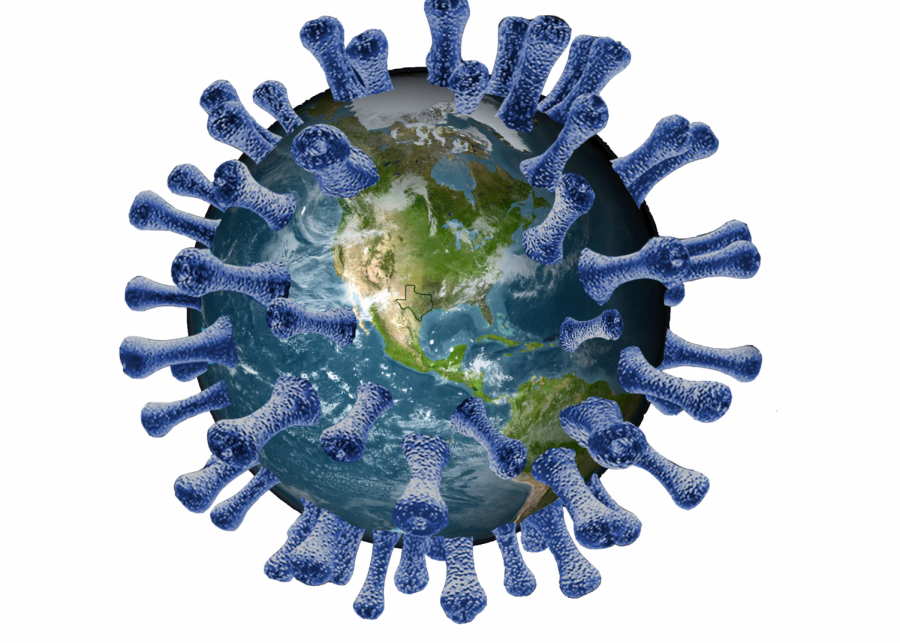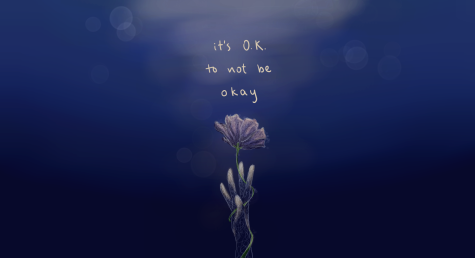Coronavirus causes decline in pollution, benefits environment
Photo Illustration by Matthew Hensel
Despite the limited scope of the change, COVID-19 has demonstrated the impact that humans have on the environment and the resilience of the planet.
April 28, 2020
While indoor spaces in Houston are deserted as COVID-19 persists, the outdoors are bustling with activity. The number of individuals biking, walking or simply enjoying the fresh air has steadily increased as people look to escape the confinement of their homes.
Quality time outdoors is sparking renewed interest in the environment.
“I see lots of people out: families walking together, bicycles I usually don’t see, dogs from a distance,” science teacher Paula Angus said. “Everyone seems to be getting outside.”
Appreciation for the outdoors has intersected with an important phenomenon. Although COVID-19 has impacted people from all corners of the world, causing school closures, deaths and mandatory separation, the virus has indirectly resulted in improved environmental conditions.
“Air quality is getting better here in Houston and around the world as we’re spending more time indoors and less time driving around and going places,” said Graham Hegeman, who teaches AP Environmental Science.
Air pollution is a significant problem around the globe, especially in densely populated areas such as India and China.
In early March, as China sought to contain the outbreak of COVID-19 through stay-at-home orders and factory closures, air pollution levels dropped dramatically. In India, residents of the northern state of Punjab were able to see the Himalayas for the first time in years due to clearer skies.
Biology teacher Neha Mathur grew up in India, and her friends and family told her about new environmental changes.
“People [say] their grandmothers told them about [seeing the Himalayas] and they could not believe it,” Mathur said. “People [are] so excited.”
The lack of air pollution and human presence around the world has also resulted in a resurgence of wildlife activity. While stories about swans and dolphins returning to Venice canals have been debunked, the virus has still impacted animal life significantly. In Barcelona, Spain, wild boars wander the streets, and in Rio de Janeiro, Brazil, baby sea turtles crawl to the ocean relatively undisturbed.
“My parents were saying that they are hearing birds that they have never heard before,” Mathur said. “It’s just amazing.”
However, there are limits to the positive environmental impact of the COVID-19 pandemic. While carbon emissions may be down, they will likely not remain that way once the outbreak ends.
“It’s more of a drop in the bucket than a real systemic change, which is what we need in order to actually change the trajectory of carbon emissions,” Hegeman said.
Despite the limited scope of the change, COVID-19 has demonstrated the impact that humans have on the environment and the resilience of the planet.
“I definitely think that this is a great learning experience,” Mathur said. “I hope we all go back to normal, but we take these little things with us.”
According to Hegeman, the fate of the environment, however, ultimately rests on whether people realize its importance in their daily lives.
“I hope people will start valuing the outdoors,” Hegeman said. “If any of that trickles into their appreciation of the environment at large, that will be a good thing overall.”

























